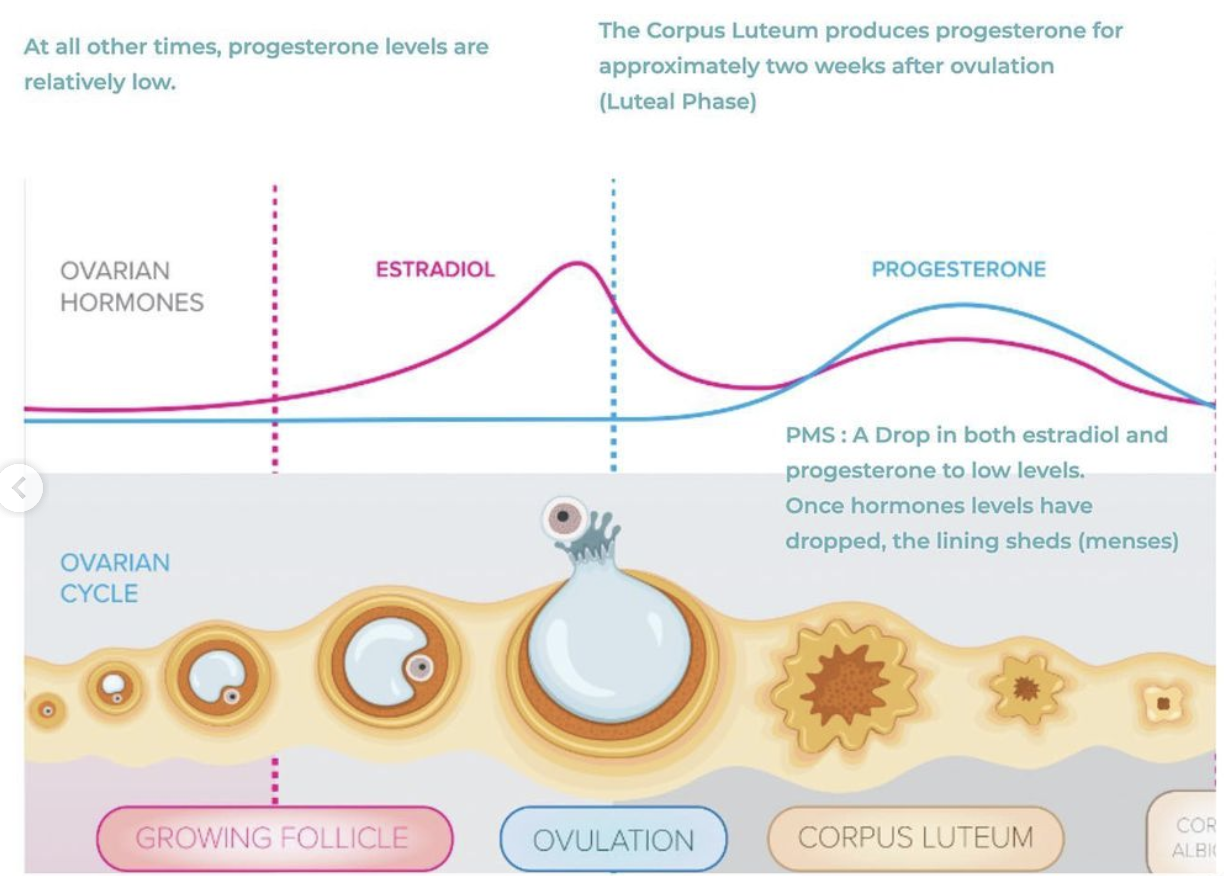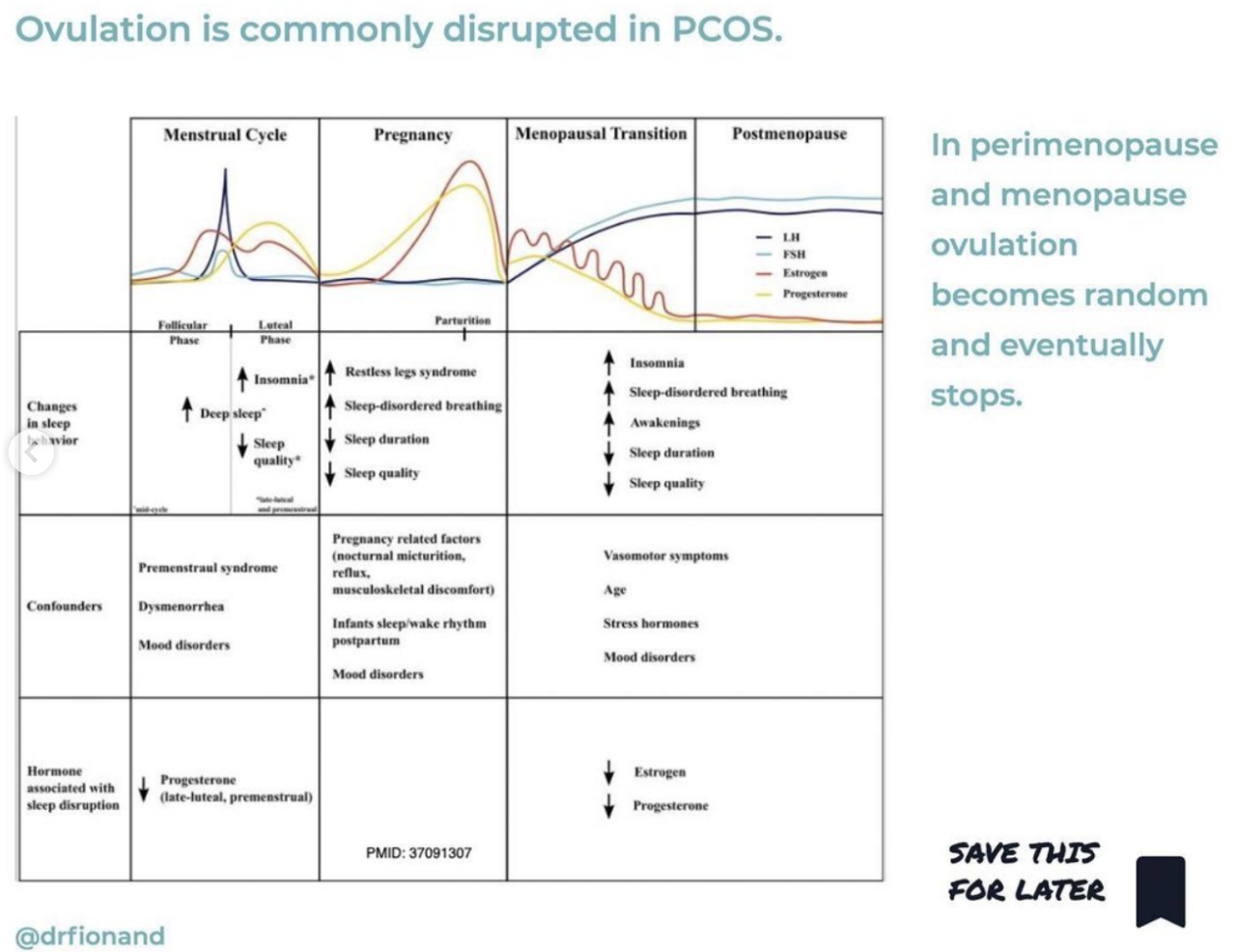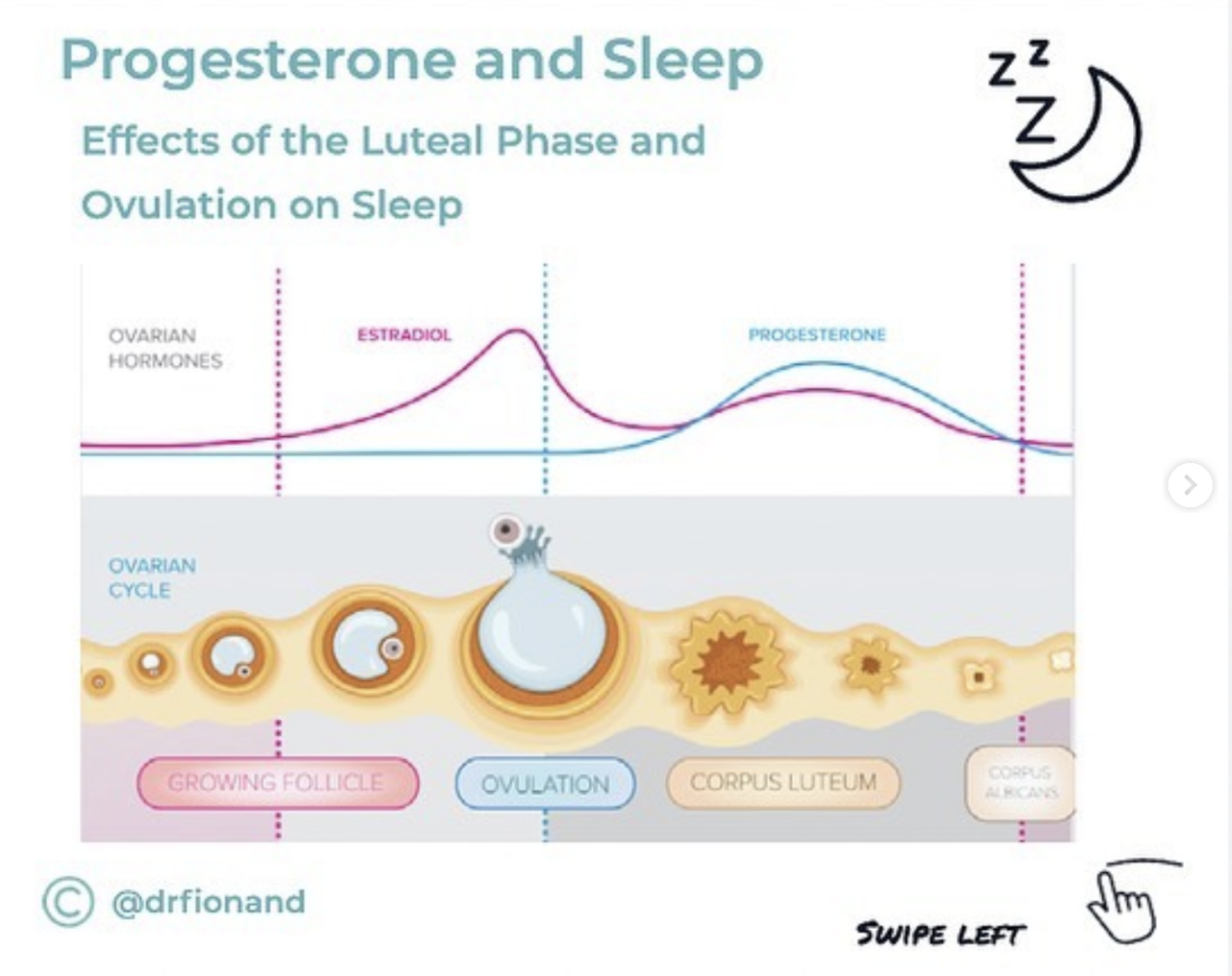Progesterone is the hormone we produce after ovulation for around two weeks – during the luteal phase of the cycle.
The corpus luteum (outer shell) of the follicle which housed the egg is like a mini battery that produces progesterone until it fizzles out! After that, the levels are very low until we ovulate again! We only make very small amounts of progesterone from the adrenal glands, in comparison to what we make after ovulation.
- Studies show that patients have more slow wave sleep, and deep sleep during the luteal phase of the menstrual cycle.
- It has also been found that low levels of progesterone and lack of ovulation (common in PCOS) are associated with significantly more wake time during the night.
During the late luteal phase, when progesterone levels drop (basically, PMS) there is a decrease in sleep quality with more frequent waking during the night.
- Micronized progesterone has been found to improve a variety of sleep parameters in a recent systematic review and meta-analysis.
- Studies have also found an increase in the amount of REM sleep with the luteal rise of progesterone.
- Each person is quite different, however and this does vary from person to person. Some patients show more sleep disturbances around ovulation, for example.
It’s thought that many of these effects reflect the actions of metabolites of progesterone like allopregnanolone on the calming GABA receptors in the brain.
PMID 37091307, 7973319, 11083596, 10607105, 10607105, 33245776


If you would like to take a deeper dive into your hormones, book an appointment here!





